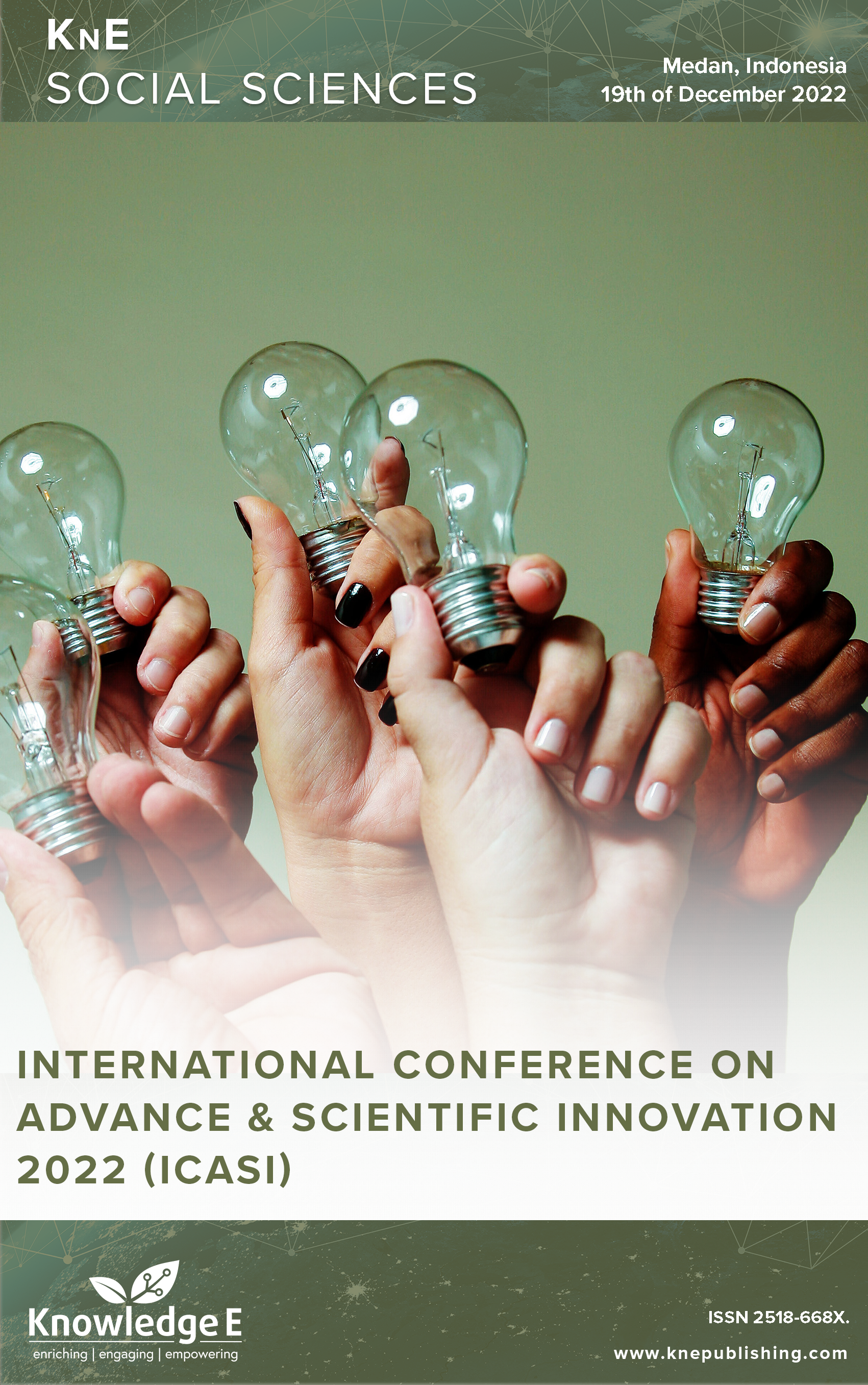The Use of Bhuppa' Bhabbhu Ghuru Rato Philosophy to Strengthen the Performance Accountability of Government Institutions
DOI:
https://doi.org/10.18502/kss.v8i9.13412Abstract
This study aimed to reveal the wisdom of the State Civil Apparatus (SCA) in charge of the Government Agency Performance Accountability System (GAPAS) organization in the Situbondo Regency, Indonesia. The research focused on individual accountability practices to strengthen the performance accountability of governmental institutions based on the Madura philosophy of Bhuppa’ Bhabbhu Ghuru Rato. Ethnomethodology was conducted using four steps: indexicality analysis, reflexivity, contextual action, and common-sense presentation. The individuals involved in the GAPAS were not entirely Madurese; nevertheless, the Madura philosophy of Bhuppa’ Bhabbhu Ghuru Rato had been internalized by everyone. It was found that this philosophical understanding was not only for individuals but also could be a role model for subordinates. This philosophy was believed to be one of the success factors in achieving the A rank for three consecutive years in the GAPAS. Regional leaders need to consider the strength of the philosophy of local wisdom and internalize it in organizational management since it can positively impact individual performance.
Keywords: performance, accountability, Madura philosophy, obedient, role model
References
[2] 2. Hefn MHM. Bhuppa’-Bhâbhu’-Ghuru-Rato (Studi Konstruktivisme-Strukturalis tentang Hierarkhi Kepatuhan dalam Budaya Masyarakat Madura), Karsa: Journal of Social and Islamic Culture. 2007;12–20.
[3] Olson O, Humphrey C, Guthrie J. Growing accustomed to other faces: The global themes and warnings of our project. Asian Pacific Interdisciplinary Research in Accounting (APIRA). Conference; 1998.
[4] Guthrie J, Humphrey C, Olson O. International experiences with new public financial management reforms: new world? Small world? Better world? Global warning: Debating international developments in new public financial management. Cappelen Adademisk Forlag; 1998. pp. 17–48.
[5] Surianti M, Dalimunthe AR. The implementation of performance based budgeting in public sector (Indonesia case: A literature review). Research Journal of Finance and Accounting. 2015;6(12):198–210.
[6] Government Regulation of the Republic of Indonesia No. 71 of (2010) concerning Government Accounting Standards.
[7] State Administration Agency (2004)
[8] Marzuki S, Laksmono BS, Subroto A. Improving government’s performance management by using the balanced scorecard on stakeholders perspectives [ JCDA]. Journal of the Community Development in Asia. 2020;3(3):29–47.
[9] Haryani DS. Evaluasi implementasi Sistem Akuntabilitas Kinerja Instansi Pemerintah (SAKIP) di Biro Hukum Pemprov Kepri. Jurnal Bangkit Indonesia. 2019;8(1):19.
[10] Zeyn E. Pengaruh good governance dan standar akuntansi pemerintahan terhadap akuntabilitas keuangan dengan komitmen organisasi sebagai pemoderasi. Jurnal Reviu Akuntansi dan Keuangan. 2011;1(1):21–36.
[11] Audit Board of the Republic of Indonesia regarding Summary of Semester Examination Results from 2004 to 2020
[12] Rochmadi NW. Virtues of the Madura Society, in 1st International Conference on Character Education (ICCE 2020). Atlantis Press; 2021. p. 161–166.
[13] Rahmah US, Sujinah S, Affandy AN. Analisis Semiotika Pierce pada Pertunjukan Tari Dhânggâ Madura
[ JSH]. JURNAL SOSIAL HUMANIORA. 2020;13(2):203–15.
[14] De Jonge H. Garam, Kekerasan, dan Aduan Sapi; Esai-Esai tentang Orang Madura dan Kebudayaan Madura. LKIS PELANGI AKSARA; 2012.
[15] Rifai MA. Manusia Madura: Pembawaan, perilaku, etos kerja, penampilan, dan pandangan hidupnya seperti dicitrakan peribahasanya. Pilar Media; 2007.
[16] Purnamasari RD, Handayani N. Pengaruh Sumber Daya Manusia, Tekanan Eksternal, Komitmen Manajemen Terhadap Transparansi Pelaporan Keuangan. Jurnal Ilmu dan Riset Akuntansi ( JIRA). 2015;4(2).
[17] Situbondo Regent Regulation No. 3 of 2021 concerning the RMTDP of Situbondo Regency for 2021-2026
[18] Nooteboom G (Titus M, Burgers P, editors). Through Turbulent Times; Diversity, Vulnerability and Resilience of Madurese Livelihoods in East Kalimantan., Rural Livelihoods, Resources and Coping with Crisis in Indonesia. 2008. pp. 43–70.
[19] Sedyastuti K, Suwarni E, Rahadi DR, Handayani MA. Human Resources Competency at Micro, Small and Medium Enterprises in Palembang Songket Industry, in 2nd Annual Conference on Social Science and Humanities (ANCOSH 2020), Atlantis Press; 202. p. 248–251.
[20] Nurhalimah N, Setiawan AR, Haryadi B. Praktik Akuntansi Manajemen Bisnis Besi Tua Berbasis Budaya Persaudaraan Madura. Jurnal Akuntansi Multiparadigma. 2019;10(1):1–21.
[21] Rohma FF. Bercermin pada Usaha Perikanan UD Putra Baru: Pengelolaan Keuangan Berjiwa Pancasilais (Masih). Ada, Universitas Trunojoyo; 2015.
[22] Arena T, Herawati NH, Setiawan AR. ‘Akuntansi Luar Kepala’ dan ‘Sederhana’ ala UMKM Batik Tanjung Bumi yang Sarat Nilai Religiusitas dan Kesalingpercayaan (Sebuah Studi Etnografis). InFestasi. 2017;13(2):309–20.
[23] Rizaldy N. Menemukan Lokalitas Biological Assets: Pelibatan Etnografis Petani Apel. Jurnal Akuntansi Multiparadigma. 2014;3(3):404–23.
[24] Amaliah TH, Sugianto S. Konsep Harga Jual Betawian dalam Bingkai Si Pitung. Jurnal Akuntansi Multiparadigma. 2018;9(1):20–37.
[25] Alimuddin A, Triyuwono I, Irianto G, Chandrarin G. Konsep harga jual kejujuran: meraih keuntungan menggapai kemaslahatan. Jurnal Akuntansi Multiparadigma. 2011;2(1):70–90.
[26] Amaliah TH. Nilai Budaya Tri Hita Karana dalam Penetapan Harga Jual. Jurnal Akuntansi Multiparadigma. 2016;7(2):189–206.
[27] Hidayat S, Triyuwono I. Praktik Penentuan Harga Jual Berbasis Meuramin. Jurnal Akuntansi Multiparadigma. 2019;10(1):42–62.
[28] Atkinson P. Ethnomethodology: A critical review. Annu Rev Sociol. 1988;14(1):441–65.
[29] Kamayanti A. Metodologi Penelitian Kualitatif Akuntansi: Pengantar Religiositas Keilmuan (Edisi Revisi). Penerbit Peneleh; https://doi.org/10.52893/peneleh.2020.39.ak.
[30] Nurkhamid M. Implementasi inovasi sistem pengukuran kinerja instansi pemerintah. Jurnal Akuntansi Pemerintah. 2008;3(1):45–76.
[31] Sihaloho FL, Halim A. Pengaruh Faktor-Faktor Rasional,Politik dan Kultur Organisasi terhadap Pemanfaatan Informasi Kinerja Instansi Pemerintah Daerah. SNA VIII Solo. 2005. p. 774–790
[32] Garfinkel H, Bittner E. Good organizational reasons for ‘bad’ clinic records. Englewood Cliffs; 1967.
[33] Fontdevila J. Indexes, power, and netdoms: A multidimensional model of language in social action. Poetics. 2010;38(6):587–609.
[34] Osipkov V et al. Intelligent transport systems: Revolutionary threats and evolutionary solutions. SAE Technical Paper

